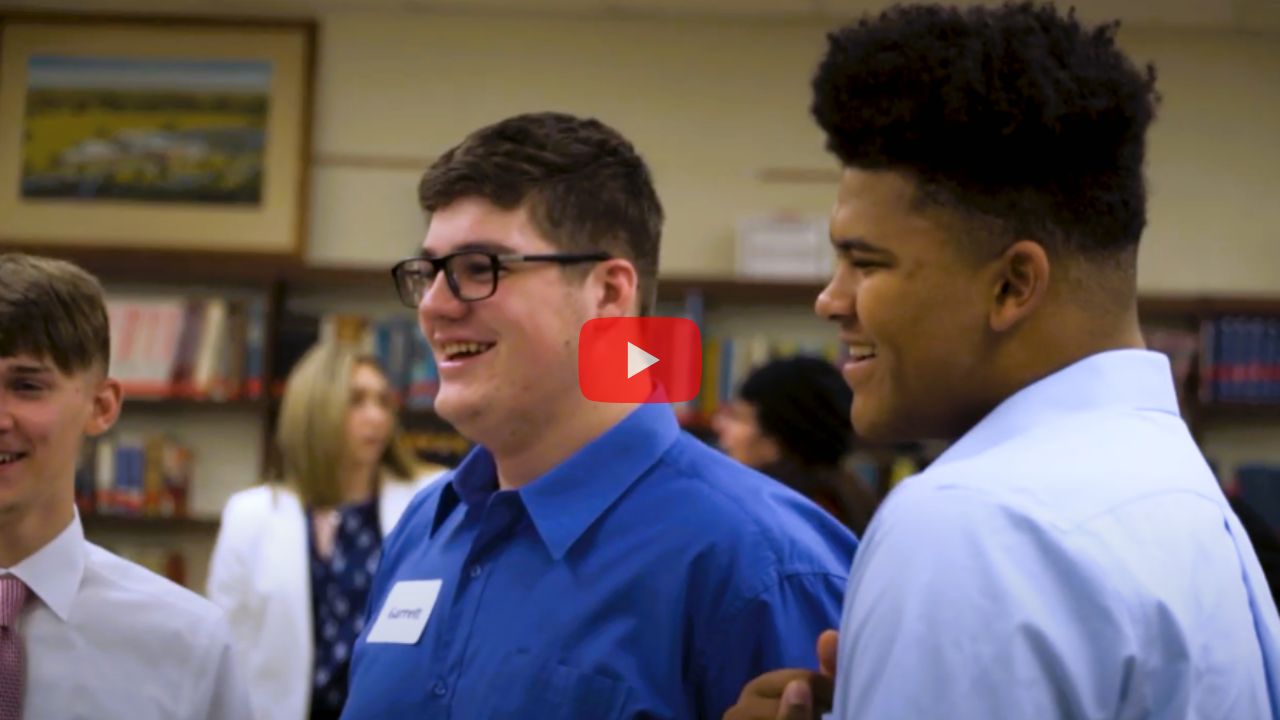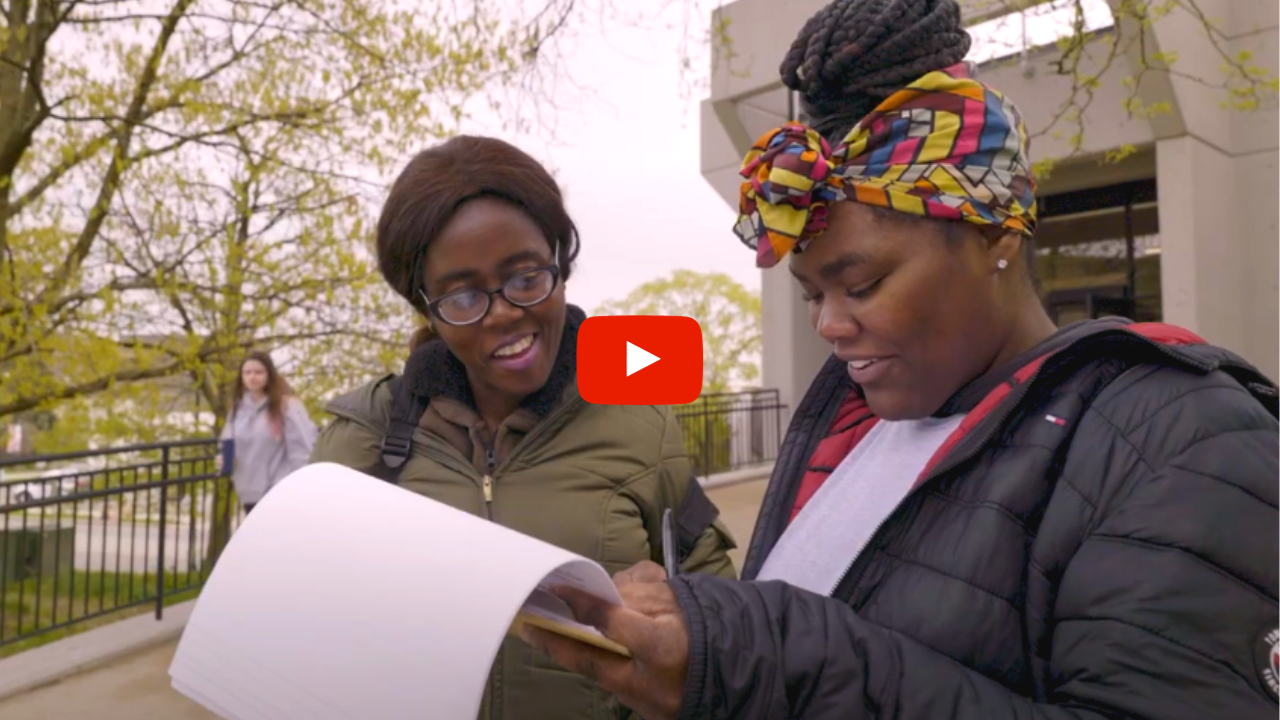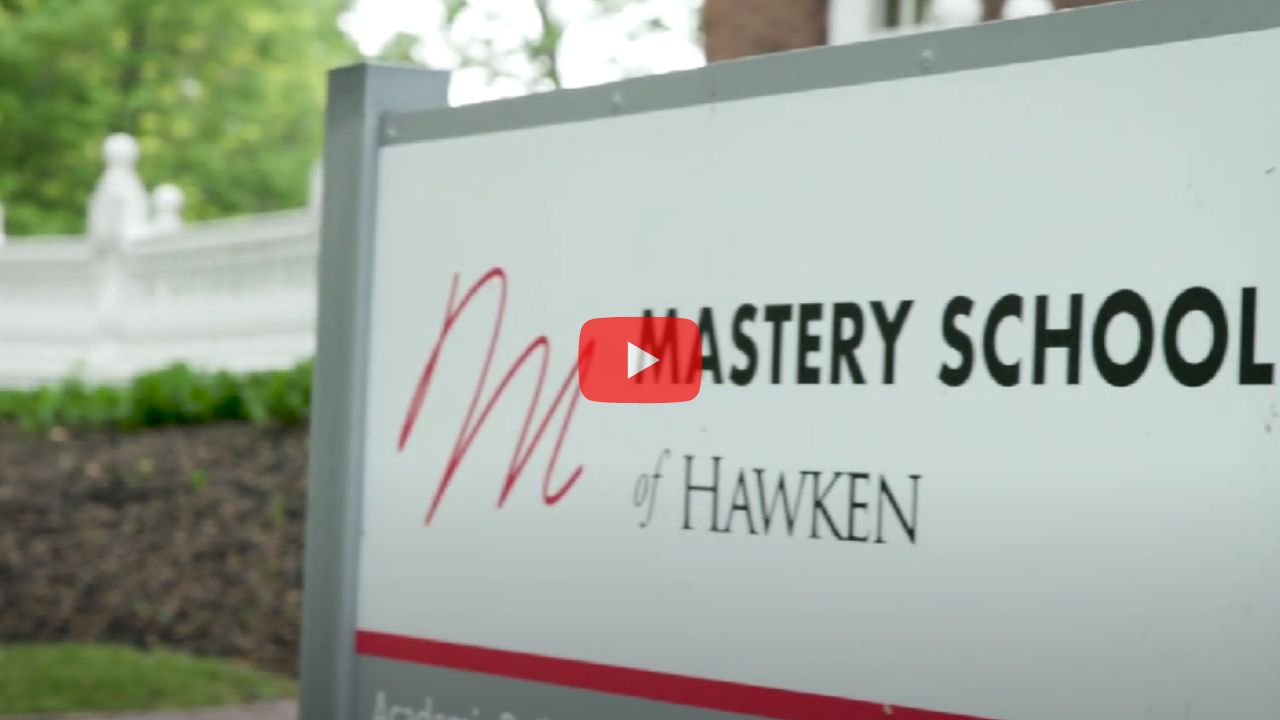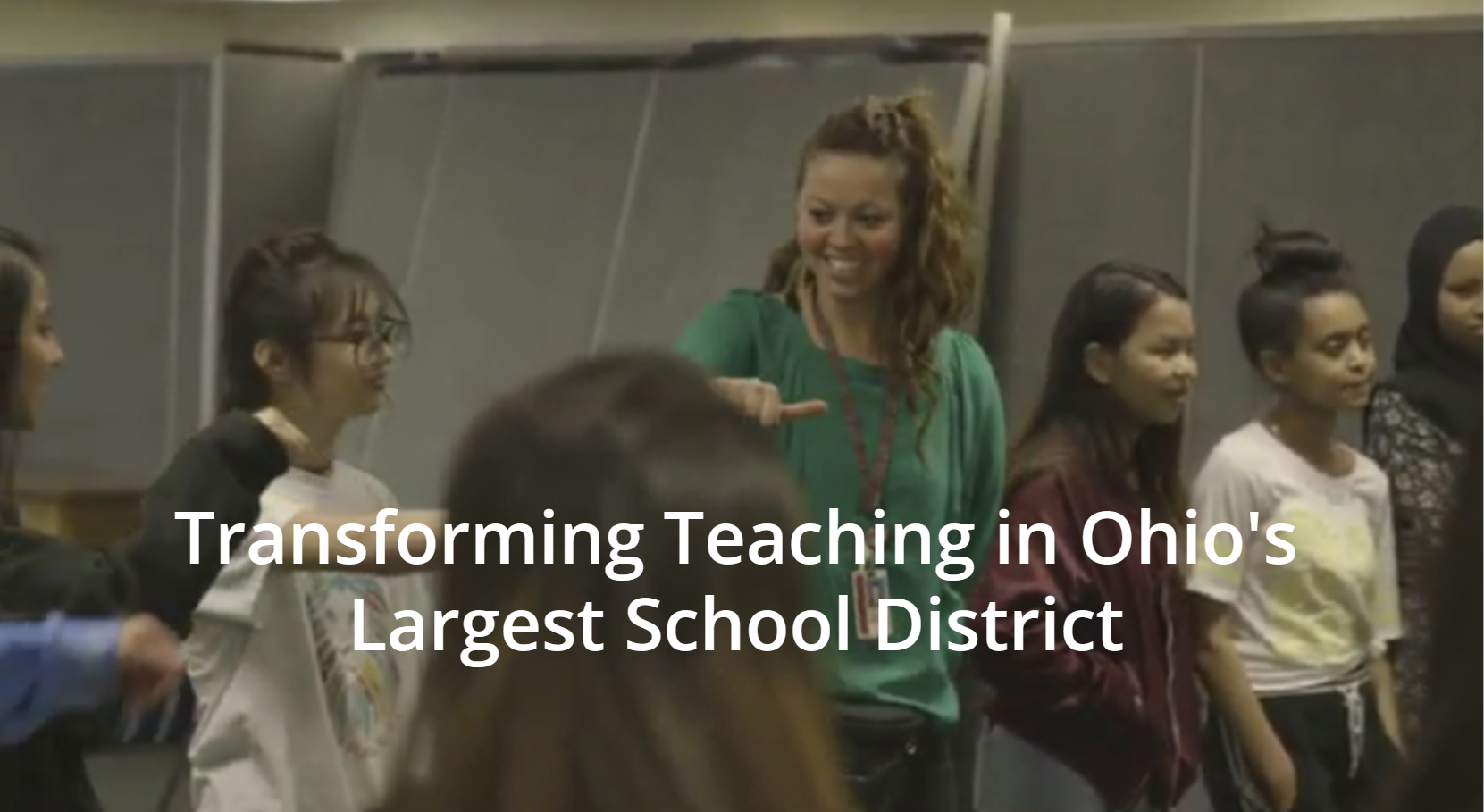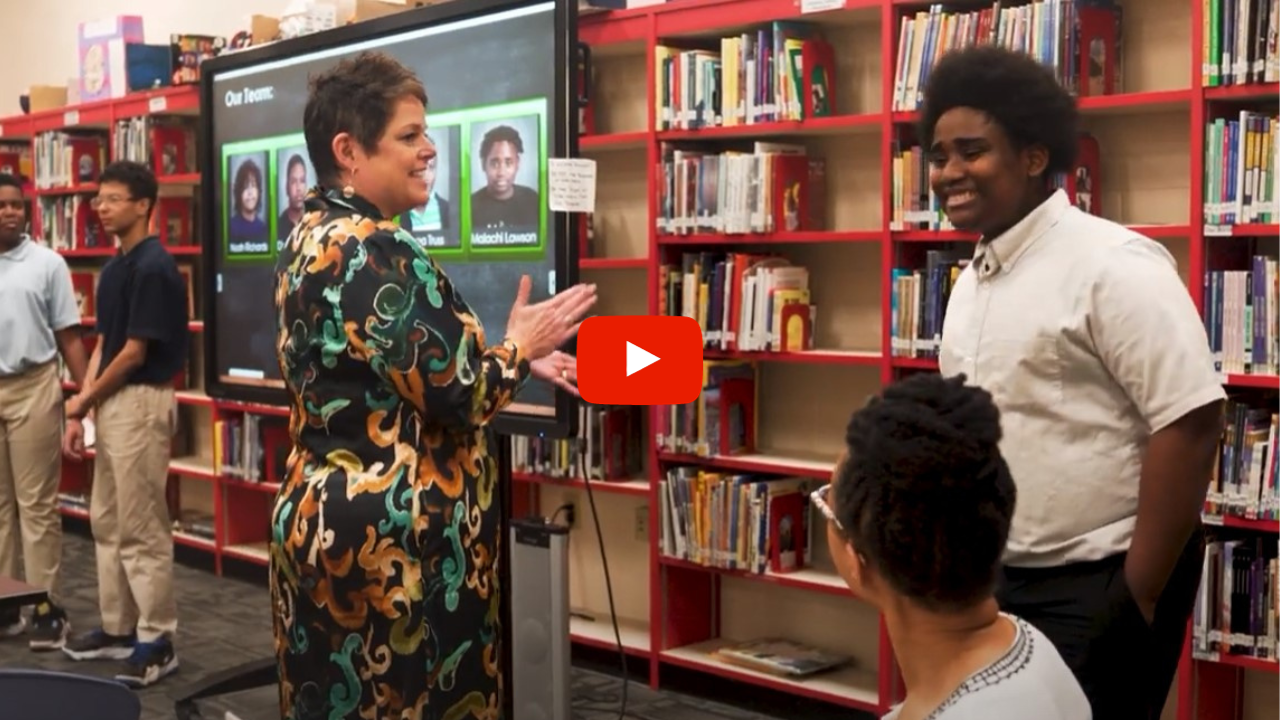In this episode Doris speaks with Kesha Conway, Program Director at Ashtabula Leadership County. She describes her course where students gained skills in collaboration and problem solving by working on a real business challenge from their local community in rural, Ohio.
Do School Better: A Podcast for People Who Want to Transform Education - Listen to more episodes here
Doris: Hey, Kesha. Boy, you just had a whole pilot. How’d it go?
Kesha: All in all it was absolutely fantastic.
Doris: Wow.
Kesha: I can’t wait to do it again.
Doris: So, talk about it. What happened?
Kesha: Well, I have my students for one day out of the month. So, I met with them September, October, November, December, only four times. And in that time…
Doris: But then each time it’s very long.
Kesha: Yes. The whole darn day. And so, in those four days, we have gone through so many emotional roller coasters. And in the end when they presented, Doris, these kids totally knocked their own socks off.
Doris: That’s a great way to put it. You knocked their… That’s perfect.
Kesha: There were like life lessons in every single thing that we were doing. Even the three minutes before they went and presented. I had one girl in one of my groups, she really wasn’t plugged in the whole time. Right? If she did come, she just kind of sat there and pretended that, “Because I missed last time, I don’t really know what’s going on and I’m not going to ask for help.” That type of thing. When they would assign each other things to do, like interview people, she would just blame it on her phone, like she didn’t get the message. That type of thing, right? However, it was an expectation, even though this wasn’t a graded thing, that all four of them on the team had to make their pitch. No notes, all the same things that you encouraged me to do. Two minutes before it was go time, she comes up to me just totally pale, shaking and crying. She said, “I’m totally scared to do this.” And I said, “Why?” And she came to the conclusion that she dropped the ball, and she felt like she didn’t know what she was saying up there and more importantly, that she had totally let her other teammates down. Because that morning, papers are flying, people are screaming, everyone is getting all worked up for the presentation, and she didn’t really…she wasn’t like…
Doris: Contributing. She didn’t have anything.
Kesha: Yes. Yes. And so, she was crying. And then I pulled her team out with her and said, “You guys, you need to solve this.” And they did. They were great teammates. They said, “Thank you for acknowledging that because when you weren’t contributing, it made us feel like…” fill in the blank. And then they said, “Okay. Moving on. We got to present, so we’re going to take this and this off of your plate, but you still have to do this.”
Doris: Nice.
Kesha: And they asked her to practice with them and then they gave her some feedback.
Doris: How great is that?
Kesha: And at the end of it, she was nervous up there, but she did it and she didn’t cry. And the other three in her team just were looking at her like, “You got this.” It was so cool.
Doris: Oh, wow.
Keesha: You know what I mean?
Doris: Yeah. Yeah. So think about… So, instead of having a science project, and we’ve all had this. Where you’re doing all of the work and there’s somebody that’s doing none of the work and it goes unsaid and you just leave with this icky feeling and the conclusion, “I never want to do a group project.” They didn’t say, “Oh don’t worry, you didn’t blow it.”
Kesha: Right.
Doris: They didn’t say that because that wouldn’t have been true. But she was able to contribute something and learn from that and probably she’ll never do that again.
Kesha: Most definitely. Because when we reflected on it, because you made me and I really needed to and it was so worth it, that’s exactly what she said. Exactly. Word for word. So, I didn’t really give them enough credit in terms of learning content. Right? More so because I’m not an entrepreneur and I didn’t really know what I was doing going into this. Right?
Doris: Sure.
Kesha: So I didn’t expect a lot out of them. But obviously they knocked that out of the park. But even when they were totally absorbing entrepreneurial content they were learning these awesome strategies on how to be effective teammates.
Doris: Yeah. Because it’s central to being successful as an entrepreneur.
Kesha: So my other group…I only had two groups. My other group was a group of three, and one of them wasn’t there for…I think it was in November, so it was a really important day. The two of them were comparing their last interviews, and they were coming to the conclusion that they had to revise some assumptions and their solution. It was a lot more bold than they had originally thought. They came to me that day. They said, “Oh my gosh, Kesha, our original idea isn’t what we think we should go with, but it’s so and so’s baby. We’re really scared that she’s not going to like this idea, and she’s going to get mad at us,” and, you know, all those feelings.
Doris: All those teenage feelings.
Kesha: Well, I mean, I would probably feel that way, too.
Doris: Yeah. That’s true.
Kesha: So, they basically asked me, “What should we do?” And instead of telling them what to do, I asked them questions and they came up with their own solution. They ended up… The girl that wasn’t there, but, you know, her original idea that was her baby, she got it. And she was still fully…She felt like she was still involved and she still had input. I mean there was just those little instances that really turned into the big “aha’s.”

Doris: And here’s what’s interesting about that because we found that as well, and what’s so funny about it is we could be having the students work on a challenge where the content is really tough. I’m thinking like Genomoncology where they had to learn a bunch of genetics and biology or EveryKey where there was a portion where they had to do a bunch of statistical analysis, or whatever it is. But the interesting thing is it’s those kinds of things like what you’re recounting, those are the big learning moments.
Kesha: That was fantastic. The other thing that I just wasn’t ready for was the…So, we worked with an ice cream shop so it was a very easily identifiable business.
Doris: It wasn’t a complicated business. Yeah. Right.
Kesha: It was for me.
Doris: Which is okay. That’s great if it works well.
Kesha: It did.
Doris: Actually, it doesn’t matter.
Kesha: It doesn’t matter. So, we went to the place and on the way back to our little headquarters, everyone had their own opinion. Right? “Oh, she should just do this. She should change the aesthetic. She should, she should, she should, she should.” And as they went through the process of interviewing and researching and all the really hard stuff, it was really interesting to see them struggle with letting go of their own idea…
Doris: Sure. In the face of research to the contrary. Right?
Kesha: Right.
Doris: Yeah.
Kesha: Yeah. If they did the right research. It was perfect. It was great. I loved it.
Doris: That’s fantastic.
Kesha: I can’t wait to do it again, Doris.
Doris: Can you talk about the students at Ashtabula, what this kind of very different sort of problem solving education means for these kids?
Kesha: So, I had seven students this semester and they were from one, two, three public schools in Ashtabula County, which is the largest county in Ohio but one of the most rural. When we were reflecting on what they had done so far, one, they had said they’ve never done anything like this before. Two, they’ve never been treated like they were capable of something like this. And they never thought…Before they presented, the session before they presented, they watched some of the Hawken students.
Doris: Yes. One of those videos.
Kesha: Yes. Well before they saw them and I told them about the Hawken students and they were like…You could just tell, they were like, “Well, we’re not like them.” You know?
Doris: Yeah. Yeah. They’re private school kids.
Kesha: Private school kids and almost city kids. And after they saw the Hawken students do that, they looked at me and said, “Oh, we can do this. We can do this.” And it was…
Doris: Yes. Nice. Nice. It’s empowering.
Kesha: Yes. They were very empowered because of this. And now they expect so much out of themselves.
Doris: What can be better than that? They’ve learned that they can learn.
Keesha: Yes. And I learned the same thing. I really did.
Doris: What do you mean?
Kesha: I came away with more confidence in myself. First of all, I now can be a little bit more uncomfortable and know that I can still do good work.
Doris: That’s awesome.
Kesha: Do you know what I mean?
Doris: Yes. I totally know what you mean.
Kesha: I don’t have to know everything in order to…
Doris: Feel comfortable teaching it.
Kesha: Yeah. Most definitely. And that’s what I came away with at your workshop. You know, the day after your workshop I sat down, started planning, feeling really good, and then I realized you’re not with me anymore. I want all the answers, Doris. And that’s exactly what I was trying to help these kids learn is, like you say, the answers aren’t in the back of the book.
Doris: Yeah.
Kesha: You’re going to have to figure it out. So you have to get after it.
Doris: Yeah. Well that’s it. Alison found some brilliant statistics that basically supported what I understand and kind of know but I never thought of explicitly, which is in order for a teacher to really substantively change their practice they have to have experienced teaching the other way before they will adopt it. And the reason that we do what we do at these workshops is so that you can leave with what you need hopefully to implement a pilot. Just try it, and feel like you have enough to go with to try it. And once you’ve done it, hopefully having experienced it, you feel like you do.
Kesha: Without a doubt. Without a doubt. And there’s something to be said though of feeling really kind of uncomfortable the first time.
Doris: Yeah.
Kesha: I mean, leaving your workshop, So I had all the tools. It’s like Christmas. Right?
Doris: Yeah.
Kesha: Seriously. You give us a lot of tools, but you don’t…
Doris: You still have to put it together. Yeah.
Kesha: You don’t tell me exactly how to do it. In it, I was totally uncomfortable. And I did I wanted to call you every day and just be like, “Please tell me how to do this.” But just like my kids got so much confidence in themselves… It’s like me looking back at me at the very beginning, and looking at myself being like, “I don’t know if I can do this.” And now I’m like, “I can do this. It’s not perfect, but it’s working.”
Doris: It works. I love that. That’s wonderful. That’s what you hope for.
Kesha: Another thing I learned, I figured out, is…You in the workshop, you told us be prepared to always ask questions when students ask for your help.

Doris: Yes, answer questions with questions.
Kesha: Right.
Doris: Yep.
Kesha: And I did that a lot and then sometimes I got lazy and I wouldn’t. And I could tell the difference in how the students received my information.
Doris: Describe that. That’s really interesting.
Kesha: I can’t think of a specific situation, but it was just this feeling. You can just feel them dial you out when you tell them…
Doris: “Here’s what you should do.”
Kesha: “This is what you should do.” And you don’t even have to phrase it like that. Even when I would say, “Have you read the book such and such?”
Doris: Yeah. Yeah. Yeah.
Kesha: You know what I mean? That’s a question, Doris.
Doris: Yeah.
Kesha: It’s not a question.
Doris: Not really, but, yes.
Kesha: So, when I would basically tell them what to do next, I know they respect me, you know what I mean?
Doris: Sure.
Kesha: I know that they trust me.
Doris: Sure. Instead of their thinking, it’s yours. One of the things… This doesn’t sound very profound, but I think it’s our job in education to teach students how to think, not what to think.
Kesha: Right.
Doris: And that’s really the essence of the difference between teaching what to think and how to think. If you say actually, “Have you read this book,” or, “Have you thought about doing this, this, this, or this,” you’re giving them what they should think.
Kesha: But they’re not even very receptive to it.
Doris: No. Because you’ve got them in this mode. They want it to be theirs.
Kesha: Right.
Doris: They want the creative problem solving.

Kesha: Yeah.
Doris: They want it to be there.
Kesha: So, it’s like a double negative or like…
Doris: Exactly.
Kesha: You know what I mean?
Doris: Yes. I do.
Kesha: If you tell me that this is what I should do, particularly as a teenager…
Doris: You take my motivation away.
Keesha: Yeah. No thanks.
Doris: Yeah. I’m not that into it.
Kesha: So, it’s like you steer them away from what you wanted to steer them towards.
Doris: Exactly. Exactly. Because it feels more like what happens in school, where they’re just consumers.
Kesha: Yeah. And sometimes probably as a child in the household, as well.
Doris: Of course. You’re the mom and you tell the kids, “I need you to eat peas.”
Kesha: Yeah, I think it can be like dealing with toddlers.
Doris: Yeah. You killed it. Yep. Right.
Kesha: So, that is something that was… It helped me when I did get lazy and I wanted to give them the answer, it helped me not do that because I knew it wasn’t effective anyway.
Doris: Yeah. Yeah. And you develop that completely different approach to the conversations and the guiding and the teaching.
Keesha: Oh, and the kids totally dig it. They live for it.
Doris: Yeah. It’s really interesting, isn’t it?
Keesha: Once they buy it.
Doris: Yeah. And talk about in terms of sort of the expectations they had for themselves about the quality of what they did.
Kesha: Initially, they had no idea what to expect. But the very first day, I recorded everything they did. You probably suggested that. But I recorded everything they did. They didn’t know that the first day. I think the first day is when they did their first business model share out. And they were all just kind of laughing about it and just kind of real casual. And the minute I started recording, man, it got real.
Doris: That’s right. Yeah.
Kesha: And they started expecting a lot more out of themselves.
Doris: Absolutely.
Kesha: Just doing that…
Doris: Alone.
Kesha: Totally stepped their game up. And then in terms of expecting things out of themselves, it really helped knowing that the business owner and her team were gonna be here in three hours.
Doris: Yeah. Yeah. It’s huge.
Kesha: Or here next month.
Doris: Right. Right. It’s huge.
Kesha: “Can we reschedule? Please, please, please. We just need one more week.” Nope.
Doris: Right. That gives the sense of urgency and that’s why when we talk about it, people get initially really intimidated by the idea of having to find a business. Or if it’s an engineering class, if they’re doing an energy related project, making sure that there’s some kind of performance, that they’re dealing with some kind of authentic audience.”How am I gonna find somebody? I don’t know anyone.” Or, “How am I going to find a business?” And the reality is it’s easy.
Kesha: If I can do it in rural Ashtabula, everyone can do it. There are no excuses

Doris: And this sounds awful, and I hope no future students here this podcast, but it’s the truth. What really matters is it’s someone real who’s not a teacher and not a parent. And the minute it’s someone like that, as a teacher, you use that as the thing that gives them pressure because you say, “Well, it’s not about whether or not I think this is good enough. Do you think this is good enough to get up and actually present to somebody who’s going to be coming in and knows their stuff?
Kesha: This was not for credit. This was just totally just an extracurricular activity, and they were meeting on Sundays and early mornings before school in November to December because…
Doris: Because they wanted to do a good job. And you’re going to hopefully get this into other Ashtabula schools as academic courses. Yes?
Kesha: Yes. It’s happening a lot more faster than I anticipated.
Doris: Quicker than you though. Yeah?
Kesha: Yes. Not only did these poor kids have to present to the business owner, they were presenting to superintendents and whatnot in the audience.
Doris: Yeah.
Kesha: So, it’s gonna spread very quickly through an area that needs something like this. And it’s really… Doris, I can’t thank you enough. I really can’t. I’ve learned so much about myself, and this is the most fun and challenging thing I’ve ever done, and you have given me all the tools and all the support.
Doris: Well, you did it. You did it. You rocked it and you’ve discovered you’re a born teacher, and you love it. Right?
Kesha: I do. I can’t go back now.
Doris: Yeah. And that’s great. You know, one of the things that probably makes me happiest in these last few years is… I’ve been in schools now for 20, 21 years, and in just the last couple three years it’s becoming so much more mainstream in education to collaborate with other teachers. That wasn’t the case in the first many, many years in schools, and I missed that. You know? I was in business before, and in high tech and we’d build stuff in software, and it was very, very team-based and collaborative. I love that that’s happening now in education, too. As we all get together to try to… We’re doing this together. How do we do this differently? How can we make school what it needs to be for our kids and for our country and our world?
Kesha: And it’s not complicated.
Doris: It’s not complicated.
Kesha: It’s super simple. It’s hard work, but it’s one, it’s worth it, and it’s simple.
Doris: It’s simple, but it’s very different. Kesha, you rocked it. I’m excited to see this spread across Ashtabula under your incredibly deft direction and see what happens.
Kesha: Watch out, here I come.
Doris: Watch out, here we come.


